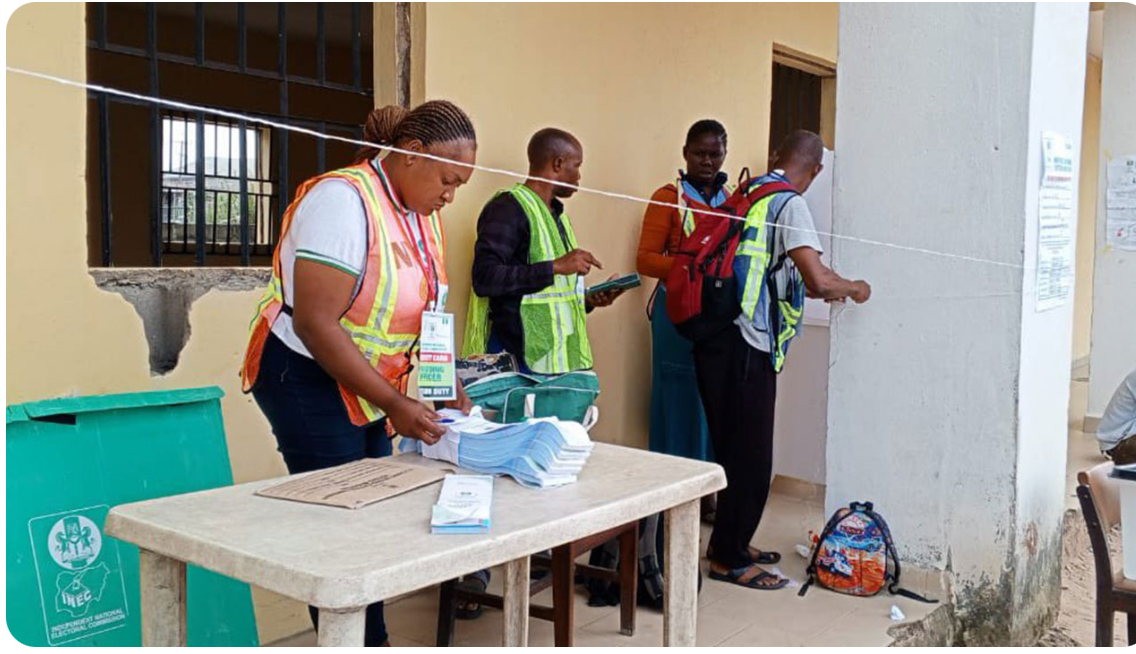Sir: The post-mortem analysis of the Edo 2024 election by many election observer groups documented how the collation process of the election results by INEC was opaque, chaotic, and vulnerable to manipulation and, in some locations, violently disrupted, especially in Oredo, Egor, Etsako West, Etsako East, Akoko Edo, Owan East local government and others.
The report also identified six challenges which plagued the collation of results of the 2024 election as INEC’s missteps and misconduct; deliberate denial of access to observers and media; logistical shortfalls; intentional disruption by politicians, political thugs and party agents; and intimidation of collation staff by security agents. Also, there were no reported cases of denial of both local or international observers and the media to collation centres in Edo State.
As 2027 Nigerian elections approach, INEC must eliminate manual collation of election results, use electronic transmission, calculation and electronic collation of election results to prevent fraud during election result collation. All results collation and calculation should be handled online and uploading of units result into IREV should be the final human effort.
INEC should use technology to calculate and communicate election results in order to eliminate bogus budget because INEC does not need wards and local governments result collation officers if technology is introduced to collate and calculate election results at the wards and local governments’ level. These technological reforms do not require INEC bogus budget to execute them. INEC should redesign IREV to calculate wards and local governments result state by state that have been uploaded on the IREV. Nigeria’s 2027 elections do not need wards and local governments returning officers because electoral fraud are now be committed at these levels. We need an enhanced IREV to handle wards and local governments result collation.
Some jurisdictions have experimented with communication systems that use computer-assisted technology, where the voting station official enters the election results on the IREV, telephone or similar device connected to a results-counting IREV. IREV can be connected to Internet and World Wide Web.
As access to public computer networks increases, electoral officials may post future election results directly on the World Wide Web, or other interface on the emerging information highway. Already tested in some jurisdictions with varying degrees of success, election results can be posted instantaneously to a global audience using the Internet. These technologies will eliminate wards and local governments’ collation centres and consequently reduce INEC bogus budgets. A credible election does not depend on INEC bogus budget.
Enhancing provisions for the electronic transmission and collation of results present several considerable benefits to Nigeria’s electoral process. It would improve transparency by offering real-time updates and minimise the risk of manual errors or results manipulation during collation.
The success of any election depends on efficient planning and its conduct, i.e. accreditation, voting, counting, collation and results declaration. Each of these processes feeds into the next. Collation and declaration of results are critical stages in the election process. Failure to complete the collation and transmission of results in a quick, transparent and accurate manner can jeopardise public confidence and the credibility of the elections and will most likely affect whether candidates and political parties accept the final results. There are situations when the integrity of a well-run electoral process is severely compromised because of problems experienced during collation and declaration of results. Collation and Declaration of results are therefore critical moments that require proper care and attention. We experienced it during Edo 2024 governorship election.
Credit:The Guardian

